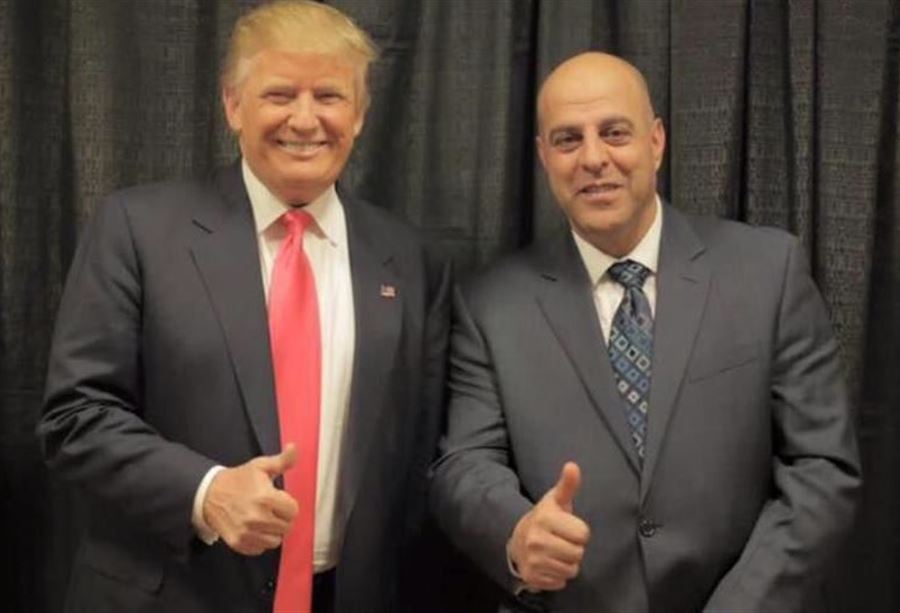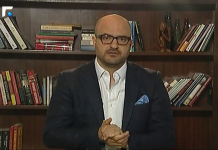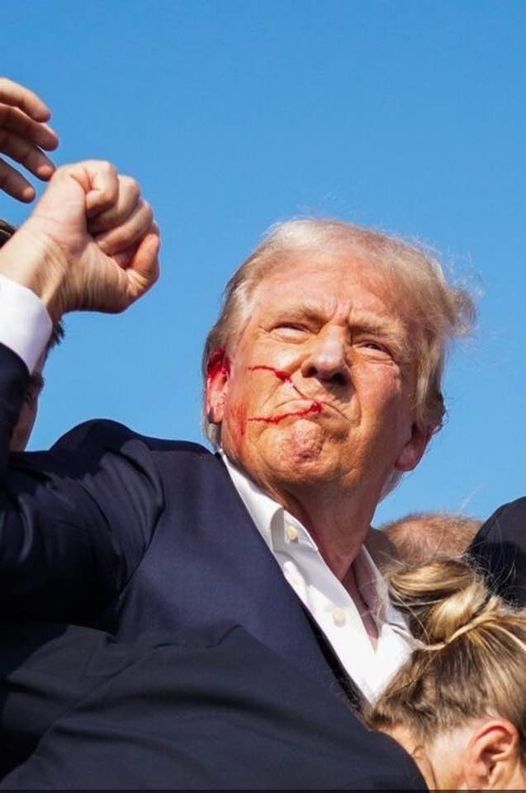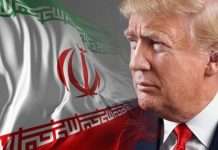Justice for an American: Why the U.S. Must Continue Pursuing Accountability for the death of Amer Fakhoury
Jason Ian Poblete/The Poblete Dispatches/Apr 29, 2025
العدالة لمواطن أمريكي: لماذا يجب على الولايات المتحدة مواصلة السعي لتحقيق المساءلة في وفاة عامر فاخوري
جيسون إيان بوبليت/موقع /The Poblete Dispatches29 نيسان 2025
كان عامر فاخوري (على اليمين)، في الصورة مع الرئيس دونالد ترامب عام ٢٠١٦، من أوائل المؤيدين للرئيس ترامب في نيو هامبشاير، الولاية التي كان يهيمن عليها الحزب الديمقراطي تقليدياً. المصدر: مؤسسة عامر فاخوري \وعائلة فاخوري.
إن السعي لتحقيق العدالة للأمريكيين المتضررين في الخارج واجبٌ أساسيٌّ من واجبات الحكومة الأمريكية. ومن بين القضايا التي تستدعي اهتماماً مُجدَّداً قضية عامر فاخوري، وهو مواطنٌ أمريكيٌّ لبنانيٌّ من نيو هامبشاير، استُدرج إلى لبنان بحججٍ كاذبةٍ عام ٢٠١٩.
بعد وصوله، اعتقلته الأجهزة الأمنية اللبنانية، وتحديداً تحت سلطة شخصيات مثل عباس إبراهيم، مدير الأمن العام اللبناني آنذاك، وهي جهة خاضعة بشكل كبير لتأثير حزب الله. سُجن فاخوري في ظروف وحشية، وأصيب بجروح بالغة أدت إلى وفاته بعد فترة وجيزة من إعادته اخيراً إلى الولايات المتحدة.
بعد خمس سنوات من وفاة عامر فاخوري، لا تزال عائلته تطالب بالعدالة. وتواجه عائلته، وأنصارها في لبنان، موجة جديدة من الهجمات من قطاعات مختلفة في لبنان، بما في ذلك عناصر تابعة لحزب الله اللبناني ومؤيديه.
على سبيل المثال، هدّد حسن بزي، المحامي اللبناني ذي التاريخ الحافل بالخطابات التحريضية، علناً باتخاذ إجراءات قانونية ضد يوسف الخوري، الصحفي اللبناني المؤيد لعائلة فاخوري، وقناة إم تي في لبنان، وهي قناة تلفزيونية بارزة. يزعم بزي أن الخوري وقناة إم تي في “احتفيا” بالانفجار المأساوي في الضاحية الجنوبية لبيروت، وهو اتهام يُذكّر بشكل مُخيف بالأساليب المُستخدمة لقمع المُعارضين في ظل الأنظمة الاستبدادية.
بزي، رغم أنه كان معروفاً بتقديمه شكاوى فساد، أصبح هو نفسه متورطاً في مشاكل قانونية. في عام ٢٠٢٣، رفعت نقابة المحامين في بيروت الحصانة المهنية للمحامين عن بزي، وهذا إجراء خطير يسمح بالسير بالإجراءات الجنائية ضده. وأجازت النقابة مقاضاته بتهمة التشهير المزعوم بعد أن هاجم بزي علناً رئيس بلدية بتهمة الفساد فيما كان قيد التحقيق.
إن رفع حصانة محامٍ في لبنان أمرٌ نادر، ويُشير إلى قلقٍ عميقٍ لدى زملائه إزاء سوء السلوك المهني. إن نمط بزي من الاتهامات العامة العدوانية، والتي غالباً ما تكون افترائية تشهيرية، والتي تحوّلت الآن ضدّ الساعين إلى تحقيق العدالة لمواطن أمريكي ومن يدعمهم، يُقوّض مصداقية ودوافع تهديداته ليوسف الخوري وآخرين.
ويبدو السبب الحقيقي وراء هذه الهجمات واضحا: فقد وقف أفراد مثل يوسف الخوري بشجاعة إلى جانب عائلة الفاخوري، وكشفوا عن تواطؤ القضاء وأجهزة الأمن الفاسدة في لبنان مع استراتيجية حزب الله الأوسع نطاقا لترهيب المعارضة وإلغائها.
كما قالت جيلا فاخوري على حسابها X مؤخراً:
بعد خمس سنوات من رحيل بطلي، لا يزال حزب الله وحلفاؤه يُصرّون على تشويه سمعة عائلتنا وكل من يدعم نضالنا في سبيل الحقيقة في لبنان. يختلقون الأكاذيب لأن قضية عامر كشفت فسادهم وفساد قبضة حزب الله على الحكومة اللبنانية. نحن ممتنون للوطنيين أمثال يوسف الخوري الذين، رغم المخاطر الجسيمة، يواصلون الدفاع عن الحق.
بنات عامر فاخوري وأصدقاؤه وأفراد من عائلته يحتفلون بإطلاق كتاب “الإسكات في بيروت” إلى جانب السيناتور الأمريكية جين شاهين في فعالية خاصة لمؤسسة عامر في بورتسموث، نيو هامبشاير. يروي الكتاب قصة محنة والدهم وكفاحه المستمر من أجل العدالة. المصدر: مؤسسة عامر فاخوري
طلبتُ من مؤسسة عامر مزيداً من المعلومات حول هذه الموجة الأخيرة من التضليل الإعلامي من لبنان. قدّمت غيلا السياق التالي:
قبل أسبوعين، أقدم المحامي اللبناني حسن بزي، المعروف بخطاباته التحريضية، على توجيه الأنظار مجدداً إلى قضية والدي عامر فاخوري. يعمل حسن بزي لمصلحة حزب الله، ومسؤولين رسميين مثل عباس إبراهيم، وهو شخصية بارزة في اعتقال والدي غير القانوني. خلال مقابلة، هدد بإعادة فتح الملف وحذّر جميع المعنيين.
لماذا يستهدف بزي يوسف الخوري إذاً؟ يعود جزء من السبب إلى قدرته على سرد قصص معقدة بأسلوب بسيط. والأهم من ذلك، أن تأثير الخوري يتجاوز مجرد السرد القصصي، فهو مخرج أفلام سينمائية وكاتب وناشط مرموق في الدفاع عن حقوق الإنسان، أمضى عقوداً في مكافحة الفساد وتعزيز السلام في الشرق الأوسط.
بصفته ناقداً علنياً لعسكرة حزب الله وفساده منذ عام ٢٠٠٦، وزعيماً لحركات مستقلة من أجل الديمقراطية في لبنان، فإن عمل الخوري يُهدد بشكل مباشر مصالح راسخة مثل بزي. ورغم تعرضه للاعتقالات والمضايقات والمراقبة، فإن مكانة الخوري العامة المتنامية والتزامه الراسخ بالحقيقة يجعلان منه صوتاً قوياً يسعى خصومه أمثال بزي جاهدين لإسكاته.
“وماذا في ذلك يا جيسون،” قد تسأل، “دع المحكمة تتولى هذا الأمر.”
القضاء اللبناني لا يتمتع بالاستقلالية ولا بالمصداقية. في لبنان اليوم، لا سيادة للقانون، بل تحكمه فصائل سياسية، وعلى رأسها حزب الله وداعموه الإيرانيون. قاعات المحاكم، التي كان يفترض بها أن تكون في خدمة العدالة، أصبحت أدوات للانتقام السياسي. يجب على الشعب الأمريكي وقادته المنتخبين أن يدركوا أنه لن تكون في لبنان عدالة حقيقية من دون إصلاح جذري وشامل.
منذ ثمانينيات القرن الماضي، تسلل حزب الله، بتمويل وتوجيه من الحرس الثوري الإسلامي الإيراني، إلى المؤسسات العسكرية والاستخباراتية والسياسية والقضائية اللبنانية. واليوم، يُدير حزب الله دولة موازية داخل لبنان، مستغلاً غطاء الشرعية الحكومية لإخفاء أنشطته غير المشروعة – من إرهاب، وتجارة مخدرات، وغسل أموال – وقمع المعارضين السياسيين بالعنف والترهيب.
وفي ظل هذه البيئة المليئة بالخوف والفساد، تم اعتقال عامر فاخوري بشكل غير قانوني وتعذيبه وفي النهاية قتله.
إن تحقيق العدالة لعامر فاخوري لا يقتصر على ملاحقة حفنة من الأفراد فحسب، بل يشمل أيضاً إعادة تأكيد التزام الولايات المتحدة بحماية مواطنيها والتصدي للقمع العابر للحدود. ورغم أن تعقيد السياسة اللبنانية – حيث تتداخل الصراعات الإقليمية والاعتبارات الإنسانية والمصالح الأمنية الأمريكية – يجعل العمل المباشر صعباً، غير أنه يجب ألا يسمح لشيء أن يحبط الجهود.
يجب التحقيق مع المسؤولين الرسميين اللبنانيين، وعملاء حزب الله، وأي جهات أخرى متورطة في الاعتقال غير القانوني، والتعذيب، ووفاة مواطن أمريكي، توصلا الى إنزال العقاب بهم، وتحميلهم تبعة أفعالهم. إن الإخفاق في القيام بذلك لن يؤدي إلا إلى تشجيع حزب الله والجماعات المماثلة له حول العالم على التوهم بأنهم يستطيعون التصرف على هواهم والافلات من عقاب.
يقع على عاتق الولايات المتحدة التزام أخلاقي وسياسي وأمني وطني بمواصلة السعي لتحقيق المساءلة. وهذا يعني:
استخدام قانون ماغنيتسكي وأدوات العقوبات الأخرى ضد الجناة.
التحقيق في دور أفراد مثل عباس إبراهيم وآخرين كانوا مسؤولين بشكل مباشر أو متواطئين في هذه الانتهاكات.
دعم منظمات المجتمع المدني والصحافيين في لبنان الذين يخاطرون بحياتهم من أجل قول الحقيقة.
تنفيذ آليات المساءلة المنصوص عليها في قانون روبرت ليفنسون لاسترداد الرهائن ومحاسبة القائمين بالاعتقال، واستخدام كافة أدوات السلطة في الدولة لمحاسبة الجناة ومن ساندهم.
قضية عامر فاخوري مثالٌ مأساويٌّ على ما يحدث عندما يعتقد أعداء أمريكا في الخارج أنه لن تكون هناك عواقب. من واجبنا تجاه عامر – وجميع الأمريكيين – أن نضمن أنهم على خطأ.
“**بوبليت ديسباتشز” منشورة مدعومة من القراء. لتلقي منشورات جديدة ودعم عملنا، بما في ذلك البحث عن كُتّاب ومحللين جدد وصقل مهاراتهم، فكّر في الاشتراك بدفع مبلغ.
Justice for an American: Why the U.S. Must Continue Pursuing Accountability for the death of Amer Fakhoury
Jason Ian Poblete/The Poblete Dispatches/Apr 29, 2025
Amer Fakhoury (right), pictured with Donald J. Trump in 2016, was an early supporter of President Trump in New Hampshire, a state traditionally dominated by Democratic politics. Source: The Amer Foundation and the Fakhoury Family
The pursuit of justice for Americans harmed abroad is a fundamental duty of the U.S. government. One case that demands renewed attention is that of Amer Fakhoury, a Lebanese-American citizen from New Hampshire, who was lured to Lebanon under false pretenses in 2019.
Once there, he was arrested by Lebanese security services, specifically under the authority of figures like Abbas Ibrahim, then head of Lebanon’s General Security Directorate, an entity heavily influenced by Hezbollah. Fakhoury was imprisoned under brutal conditions and sustained grave injuries that led to his death shortly after he was finally returned to the United States.
Five years after Amer Fakhoury’s passing, his family continues to advocate for justice. They and their supporters in Lebanon now face a new wave of attacks from a several sectors in Lebanon including Lebanese Hezbollah-aligned operatives and their sympathizers.
Take for example, Hassan Bazzi, a Lebanese lawyer with a history of incendiary rhetoric, has publicly threatened legal action against Youssef El-Khoury, a Lebanese journalist and supporter of the Fakhoury family, as well as MTV Lebanon, a prominent television station. Bazzi alleges that El-Khoury and MTV “celebrated” the tragic explosion in Beirut’s southern suburb—an accusation eerily reminiscent of tactics used to suppress dissenters under authoritarian systems.
Bazzi, although once known for filing corruption complaints, has himself become embroiled in legal troubles. In 2023, the Beirut Bar Association revoked Bazzi’s professional immunity, a serious sanction that allows criminal proceedings against him to move forward. The Bar authorized his prosecution for alleged defamation after Bazzi publicly attacked a municipal leader already under investigation for corruption.
Lifting a lawyer’s immunity in Lebanon is rare and signals profound concern by his peers about professional misconduct. Bazzi’s pattern of aggressive and often defamatory public accusations, now turned against those seeking justice for an American citizen and those who support them, further undermines the credibility and motivation behind his threats against Youssef El-Khoury and others.
The real reason for these attacks seems clear: individuals like Youssef El-Khoury have bravely stood with the Fakhoury family, exposing the complicity of Lebanon’s corrupted judiciary and security apparatus with Hezbollah’s broader strategy to intimidate and eliminate opposition.
As Guila Fakhoury said on her X account recently:
“Five years after my hero’s passing, Hezbollah and their allies remain fixated on slandering our family and anyone in Lebanon who supports our fight for truth. They fabricate lies because Amer’s case exposed their corruption and the deep rot of Hezbollah’s grip on Lebanon’s government. We are grateful for patriots like Youssef El-Khoury who, despite grave risks, continue to stand for what is right.”
Amer Fakhoury’s daughters, friends, and other family celebrate the launch of Silenced in Beirut alongside U.S. Senator Jeanne Shaheen at a special Amer Foundation event in Portsmouth, New Hampshire. The book tells the story of their father’s ordeal and the ongoing fight for justice. Source: The Amer Foundation
I asked the Amer Foundation for more information about this latest round of misinformation coming out of Lebanon. Guila provided the following context:
Two weeks ago, Hassan Bazzi, a Lebanese lawyer known for incendiary rhetoric, brought renewed attention to my father, Amer Fakhoury’s case. Hassan Bazzi works for Hezbollah and officials like Abbas Ibrahim a prominent figure in my father’s illegal detention. During an interview, he threatened to reopen the file and warned everyone involved.
So why is Bazzi targeting Youssef El Khoury? Part of the reason is that he knows how to tell complex stories in a simple way. But more critically, El Khoury’s influence extends far beyond storytelling—he is a respected filmmaker, writer, and human rights advocate who has spent decades challenging corruption and promoting peace in the Middle East.
As a public critic of Hezbollah’s militarization and corruption since 2006, and a leader of independent movements for democracy in Lebanon, El Khoury’s work directly threatens entrenched interests like Bazzi’s. Despite facing arrests, harassment, and surveillance, El Khoury’s growing public stature and unwavering commitment to the truth make him a powerful voice that adversaries like Bazzi are desperate to silence.
“So what, Jason,” you may ask, “let the courts deal with it.”
The Lebanese judiciary is neither independent nor credible. In Lebanon today, there is no rule of law, only rule by political factions, chief among them Hezbollah and its Iranian backers. Courtrooms that should be instruments of justice have instead become tools for political revenge. The American people and their elected leaders must understand: there is no meaningful justice in Lebanon without deep and systemic reform.
Since the 1980s, Hezbollah, funded and directed by Iran’s Islamic Revolutionary Guard Corps (IRGC), has infiltrated Lebanon’s military, intelligence, political, and judicial institutions. Today, Hezbollah operates a parallel state within Lebanon, using the veneer of governmental legitimacy to shield illicit activities—terrorism, drug trafficking, money laundering—and to suppress political opponents through violence and intimidation.
It was under this environment of fear and corruption that Amer Fakhoury was unlawfully detained, tortured, and ultimately killed.
Securing justice for Amer Fakhoury is not only about holding a handful of individuals accountable; it is about reaffirming the U.S. commitment to protect its citizens and stand against transnational repression. While the complexity of Lebanese politics—where regional conflicts, humanitarian considerations, and U.S. security interests intertwine—makes direct action difficult, it must not deter efforts.
Lebanese officials, Hezbollah operatives, and any other actors involved in the unlawful detention, torture, and death of an American citizen must be investigated, sanctioned, and held to account. Failure to do so would only embolden Hezbollah and similar groups worldwide to believe they can act with impunity.
The United States has a moral, political, and national security obligation to continue pursuing accountability. This means:
Using the Magnitsky Act and other sanctions tools against perpetrators.
Investigating the role of individuals like Abbas Ibrahim and others who were directly responsible for or complicit in these abuses.
Supporting civil society organizations and journalists in Lebanon who risk their lives to speak the truth.
Enforcing the accountability mechanisms provided in the Robert Levinson Hostage Recovery and Hostage-Taking Accountability Act, and using all instruments of state power to hold perpetrators and those who helped them to account.
The case of Amer Fakhoury is a tragic example of what happens when America’s enemies abroad believe there will be no consequences. We owe it to Amer—and to all Americans—to ensure they are wrong.
The Poblete Dispatches is a reader-supported publication. To receive new posts and support our work, including finding and cultivating new writers and analysts, consider becoming a paid subscriber.
https://pobletedispatches.substack.com/p/justice-for-an-american-why-the-us



















